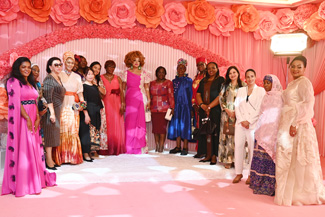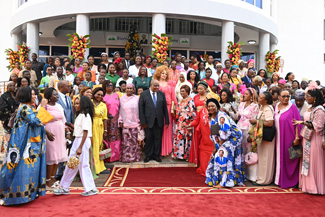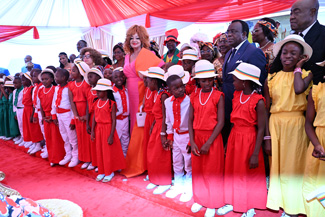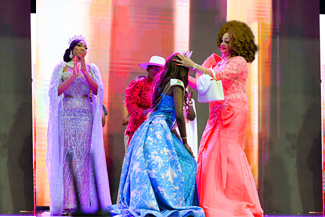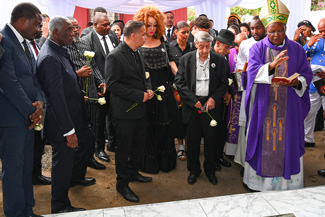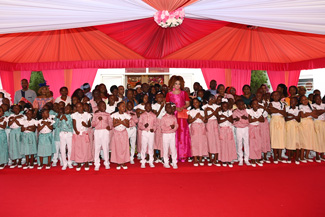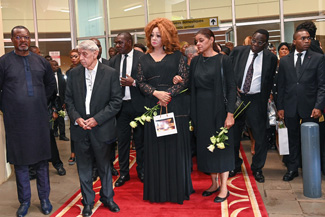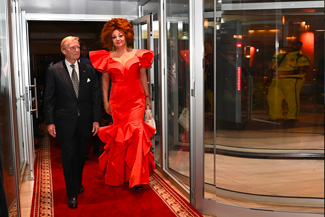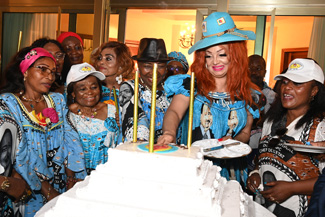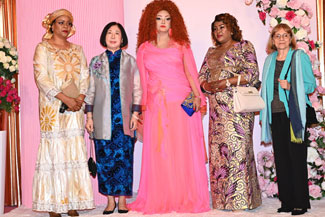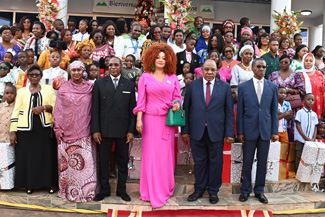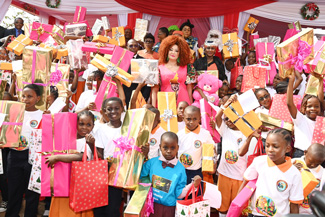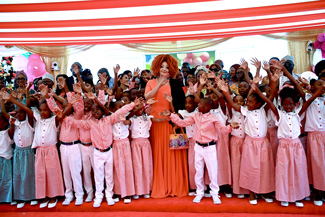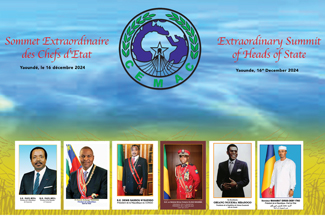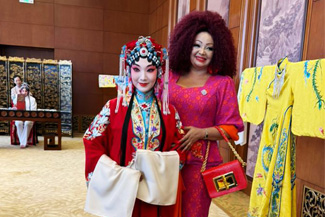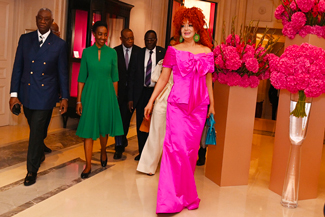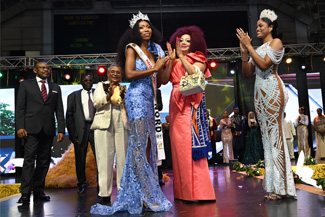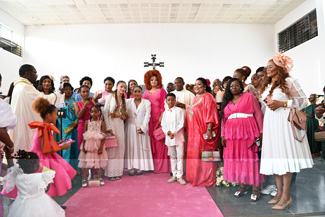Mr President,
Heads of State and Government,
Heads of Delegation,
Distinguished Delegates,
Excellencies, Ladies and Gentlemen,
I am honoured to represent the President of the Republic of Cameroon, H.E. Paul Biya, at the proceedings of the 78th Session of the United Nations General Assembly. He has directed me to deliver the following address on his behalf and I quote:
Permit me, first of all, to extend Cameroon’s warm congratulations to Mr Dennis Francis on his election as President of this session. We believe that by virtue of his rich experience in multilateral diplomacy and his sterling personal qualities, our proceedings will be efficiently and successfully conducted.
Therefore, I wish to reassure him of my country’s support in the discharge of his lofty duties.
I avail myself of this opportunity to also congratulate his predecessor, Ambassador CSABA KOROSI, on his active part in preparing several high-level meetings, whose review during the 78th session is about our future. Cameroon here and now extends its profound gratitude to him.
I am also pleased to once again extend my deep appreciation to the Secretary-General, Antonio GUTERRES, for the outcomes achieved thus far in discharging his lofty and delicate duties. I reiterate Cameroon’s full support for his efforts geared towards enabling our Organization to efficiently address today’s multiple global challenges.
Lastly, from this rostrum, I would like to restate Cameroon’s support for and solidarity with the respective Governments and peoples of the Kingdom of Morocco and the Republic of Libya following the natural disasters that recently hit them causing heavy loss of lives and property.
Mr President,
Excellencies, Ladies and Gentlemen,
The general theme of this session’s debate is: "Rebuilding trust and reigniting global solidarity: accelerating action on the 2030 Agenda and its Sustainable Development Goals towards peace, prosperity, progress and sustainability for all". The relevance of the theme is self-evident.
This 78th session is being held against a backdrop of heightening tensions and geopolitical rivalry that are threatening peace and economic, social and cultural development in multiple countries in Africa, Asia, the Americas and Europe. Such is the case in Ukraine, the Sahel and Great Lakes regions and the Horn of Africa.
These situations are undermining efforts being made to overcome the COVID-19 pandemic, revive growth and development, and efficiently combat climate change.
Fortunately, the international community has mobilized to reach consensus on some major challenges. Such is the case for the Paris Climate Agreement, the major agreement on sustainable development programme which we jointly launched right here in 2015, alongside the Addis-Ababa Action Agenda on development financing. Even more recently, we adopted the Ottawa Framework Agreement and the Agreement on Marine Biodiversity.
It is under the same impetus that Africa is gradually implementing its Agenda 2063 and the Agreement on the African Continental Free Trade Area to promote an integrated Africa, a peaceful Africa, a secure Africa, an Africa of good governance, an Africa of shared prosperity and an Africa as an influential global player and partner by 2063.
Despite all these efforts, the expected results are yet to be seen. What could explain such a situation?
Mr President,
Among other reasons, it should be acknowledged that often, there is no follow-through on promises made. I would mention for instance, insufficient mobilization of resources towards achieving the SDGs, or failure to reach the 0.7% target set for official development assistance despite promises made almost 50 years ago.
It must also be acknowledged that, in some cases, the resources mobilized have either been delayed or were disbursed sparingly due to certain conditionalities.
Furthermore, tepid political will has often been the issue, when not simply lacking or distorted by egoistic considerations, which sometimes take precedence over the general interest and active solidarity between peoples and nations.
Lastly, the tools, mechanisms, institutions and approaches put in place in the aftermath of World War II to promote peace, security and economic and social development are no longer as effective or relevant, given the diversity and complexity of new realities of the world.
Mr President, what is the way forward now?
First and foremost, we need a sense of pride, self-competition and a fresh political will, as well a renewed conscience, which emphasizes the primacy of the general interest, where Science is placed at the service of humanity to ensure the well-being of each and every one of us, in important areas such as peace, security, health, and economic, social and cultural development.
In this regard, our actions must truly be based on the UN Charter, its ideals, principles and objectives.
We must resolve conflicts through dialogue and consultation.
We must promote a pact for a renewed global financial architecture.
We must work relentlessly for the advent of veritable balanced global development, whereby all the regions of the world can aspire to prosperity and growth. This, in any case, is Africa's ambition, through Agenda 2063 and the establishment of a Continental Free Trade Area, whose outcomes are expected in areas such as research, science, technology, energy, infrastructure, communications and telecommunications, agriculture and food, debt, climate and development financing, in general.
Lastly, we must take collective action to reform the Security Council in order to ensure a permanent and fair representation of the countries of the South and, in particular, Africa.
Worth noting is the fact that Africa is not only under-represented on the Security Council but is also the only continent without a permanent presence on this Organ, whereas two thirds of the UN’s activities are devoted to that continent. Truth be told, this is an injustice that should be corrected.
Accordingly, we reaffirm our support for the Ezulwini consensus and the Sirte Declaration, by demanding two additional permanent and three additional non-permanent positions for Africa on the Security Council.
Mr President,
Excellencies, Ladies and Gentlemen,
Cameroon for its part is determined to fulfil its commitments under the various circles of solidarity to which it belongs.
Cameroon was among the first countries to ratify the Paris Climate Agreement and, in conjunction with the other members of the Congo Forest Basin, is actively working to seek solutions to climate change.
Cameroon is also among the pioneers in the operationalization of the African Continental Free Trade Area Agreement, and has initiated a plan to implement the SDGs and Agenda 2063, through the adoption of a National Development Strategy, the NDS 2030, seeking to make Cameroon an emerging country by 2035.
It has also adopted all the reforms needed to promote sustainable economic and social development, good governance focused on decentralization, in order to allow all citizens to participate fully in the affairs of their country.
Security-wise, the battle against Boko Haram is ongoing actively, together with the member countries of the Joint Multinational Force of the Lake Chad Basin Commission. The outcome of these efforts are already tangible on the ground, although additional efforts are needed.
In the North-West and South-West Regions in particular, peace and stability are returning progressively, thanks to the diligent actions of the Government following the recommendations of the Major National Dialogue, despite sporadic cases of separatist-orchestrated violence or hostage-taking with demands for ransom.
Government’s effective implementation of the Presidential Reconstruction and Development Plan, as well as the operationalization of the Disarmament, Demobilization and Reintegration (DDR) Centres, augur well for a return of sustainable peace and stability, and the revival of economic and development activities in the two Regions. These efforts will definitely not be futile.
I wish to avail myself of this opportunity to once again thank our bilateral and multilateral partners who continue to contribute towards improving the situation, through their support for the various plans adopted by Government. Their invaluable assistance in combating the financing of destabilizing activities in these two regions is also appreciated by Government, which continues to appeal to those who have taken up arms to lay them down.
Mr President,
Excellencies, Ladies and Gentlemen,
The world is changing dramatically. Therefore, it is up to us to adopt the appropriate decisions and guidelines to make it better, for the well-being of our populations. We can achieve this, as long as we are able to strengthen our solidarity to tackle our common challenges together.
In this era of digital and artificial intelligence, we have prodigious tools in our hands. If used wisely, they can enable us to achieve the desired outcomes in order to ensure the survival of humanity and secure a better future.
Thank you.
End of quote.
New York, 26 September 2023
Download (pdf)
